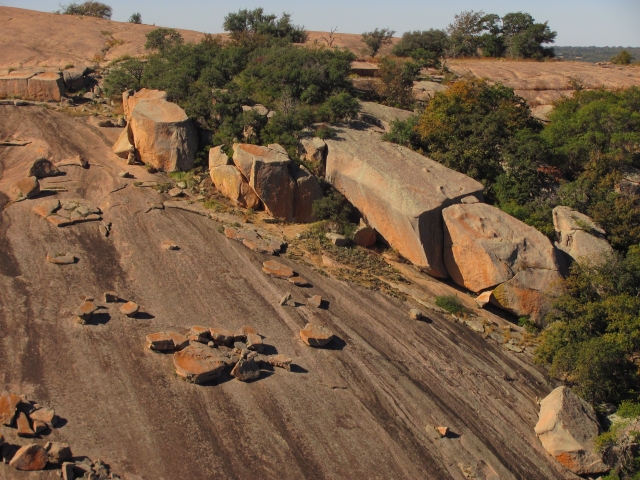
"When one tugs at a single thing in nature, he finds it attached to the rest of the
world."
-- John Muir
The Earth is an interacting system of air (atmosphere), water (hydrosphere), rock (lithosphere) and life (biosphere). As such, Earth Science integrates physical as well as biological disciplines to understand the evolution and dynamics of the Earth system and its components.
At UNT, faculty and students in the Earth Science and Modeling (ESM) core examine patterns of landforms, water, vegetation, soils and climate at multiple spatial and temporal scales and investigate how human and natural processes shape those patterns. Our interdisciplinary faculty specializes in such diverse fields as geology, hydrology, geomorphology, paleoecology, landscape ecology, meteorology and climatology. We also have advanced technical expertise in geographic information science (GIS), remote sensing and quantitative methods, which we apply extensively to address contemporary environmental issues.
Fieldwork and modeling are major components of education and research in ESM. Geography students in this core area participate in course field trips and work directly with faculty members on research projects. Currently, research is conducted in the U.S. (California, Kansas, Louisiana, Oregon, Texas), Latin America (Mexico, Peru, Venezuela), China and Eurasia (Georgia).
These projects span a wide range of topics, including:
- landscape parameters derived from LiDAR data (Dong)
- geologic and archaeologic records of human evolution (Ferring)
- groundwater monitoring and remediation, and wetland mitigation (Hudak)
- remote sensing of soil texture (Pan)
- hurricane storm surge sedimentation (Williams)
- past landscapes and historical ecology (Nagaoka & Wolverton)
Due to the breadth and depth of our program, geography students with coursework in ESM and hands-on training at our facilities (i.e., GIS Laboratory, Hydrology Laboratory) can find employment in environmental consulting, state and federal organizations, non-profit organizations and research agencies.